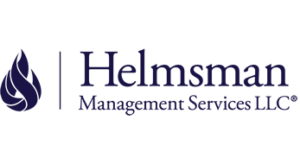
For most businesses, remote work makes many parts of the job easier – and less expensive. However, there can be challenges with employees working remotely. You can avoid some of the more common pitfalls of remote work by having the right policies and procedures in place. A good place to start is by consulting with your human resources team (or an employment lawyer, if necessary) to ensure compliance when managing your virtual workplace risks.
The following are six key areas of your business that you should monitor for risks as they relate to employees working remotely.
Tracking employee time
Ensure compliance with the Fair Labor Standards Act of 1938 (FLSA) and establish a process within your teams for work during non-standard business hours and accommodations for time zones and schedule adjustments.
- Timekeeping tools: Avoid discrepancies in remote-employee claims around required meal periods, rest breaks, and overtime by implementing appropriate timekeeping methods. Monitor the reports and remind non-exempt employees to stay within the agreed parameters.
- Overtime: Stay ahead of potential overtime deficits by establishing a clear set of guidelines for employees to record and report work beyond their scheduled hours.
Expense reimbursement
Although employees may request reimbursement for expenses incurred while working remotely (use of their personal cell phone, electricity, Internet, and other home office costs), employers are not generally required to reimburse for these expenses. However, there are some exceptions:
- Under the FLSA, if these expenses affect the salary basis test or minimum wage earnings, employers may be responsible for reimbursement.
- Relevant laws in some states may require a different strategic plan of action, particularly: California, Illinois, New Hampshire, Massachusetts and Pennsylvania.
Discrimination & harassment
Harassment, bullying, and unfair treatment can still occur with remote work, and you shouldn’t forget your obligation to review employee concerns.
- Liability laws: In general, companies will be held vicariously liable for unlawful discrimination or harassment by a supervisor, but if the conduct is by a co-worker, the employer is liable only to the extent it was negligent in discovering the behavior and taking action to end it.
- Training opportunities: All employees can benefit from training on avoiding discriminatory behavior. However, training for those who are supervising others is particularly important. Currently, states such as California, New York, and Connecticut, have mandated sexual harassment training.
Disability accommodations
A remote work policy cannot treat employees differently on the basis of disability. This means that as an employer, you should not ask employees who disclose they have a medical condition to work in the office or to work remotely based on an assumption the person cannot work in the other locale. Other factors to consider include:
- As you re-open to allow in-person work, it is important to balance the needs of employees who wish to remain in a remote setting due to pre-existing conditions (e.g., asthma). We recommend reviewing the most up-to-date guidance from the Equal Employment Opportunity Commission on appropriate accommodations: https://www.eeoc.gov/.
- For any remote employees seeking assistance under the Americans with Disabilities Act (ADA), a process should be established within your business to assess and assist a strategic work plan for them.
Worker safety & compensation
Although your employees may be virtual, courts will likely consider remote workers at home to be on the employer’s work premises when determining whether an injury is compensable under workers compensation laws – even though the employer has no direct control over that environment. So, what does this mean for your business?
- OSHA obligations: Under OSHA, employers are required to provide a safe workplace, even if that isn’t in the normal place of business operations. Review whether employees, especially if they must travel, have safety options such as PPE, paper towels, and hand sanitizer with at least 60 percent alcohol.
- Remote injuries: A recent court case found that injuries resulting from a trip over the family dog while in the middle of a work task could be compensable. It’s hard to control for that sort of situation, but given the obvious risk of ergonomic injury for employees who work on keyboards, consider conducting virtual reviews of an ideal home office set-up for your team.
Workforce management
As we begin the slow recovery process from COVID-19, the impact of virtual workspaces will extend to new hire procedures, protected leave plans, and future furloughs. It’s important to stay informed on the latest Family and Medical Leave Act (FMLA) and federal legislation in these key areas:
- Hiring: At will offers are key to maintaining flexibility during this time. As an employer, you should be careful not to enter into an employment contract when offering a position. As a general rule of thumb, new employees are obligated to produce proof of citizenship or work authorization in person, unless your workplace is fully remote.
- Leave of Absence: Remote employees still have the ability to take protected leave under FMLA, the ADA, or state law depending on your business. Employees will also have the right to take paid leave under the Families First Coronavirus Response Act (FFCRA) until the end of 2020 absent an extension, state law in certain cases, or leave pursuant to a short-term or long-term disability plan.
- Reduction in Force (RIF): If you are executing a RIF to help minimize costs, remember to consider requirements under the federal WARN Act (which generally requires 60 days’ notice where there are mass layoffs, among other events) or other WARN requirements under certain state laws. Similarly, when making alternate cost-saving measures (such as reduction of hours and furloughs, consider UC and FLSA responsibilities as well as potential WARN issues.
COVID-19 continues to challenge businesses in a number of key areas. As an employer, your best line of defense to mitigate remote-work risks is to stay informed. At Helmsman Management Services, you can count on us to deliver the right resources at the right time to drive the very best outcome for your business.
The foregoing is not professional advice nor legal advice, is provided for information only, and is not a substitute for consulting with a professional.
Featured insights
This website is general in nature and is provided as a courtesy to you. Information is accurate to the best of Helmsman Management Services’ knowledge, but companies and individuals should not rely on it to prevent and mitigate all risks as an explanation of coverage or benefits under a policy or service contract. Consult your professional advisor regarding your particular facts and circumstance. By citing external authorities or linking to other websites, Helmsman Management Services is not endorsing them.





